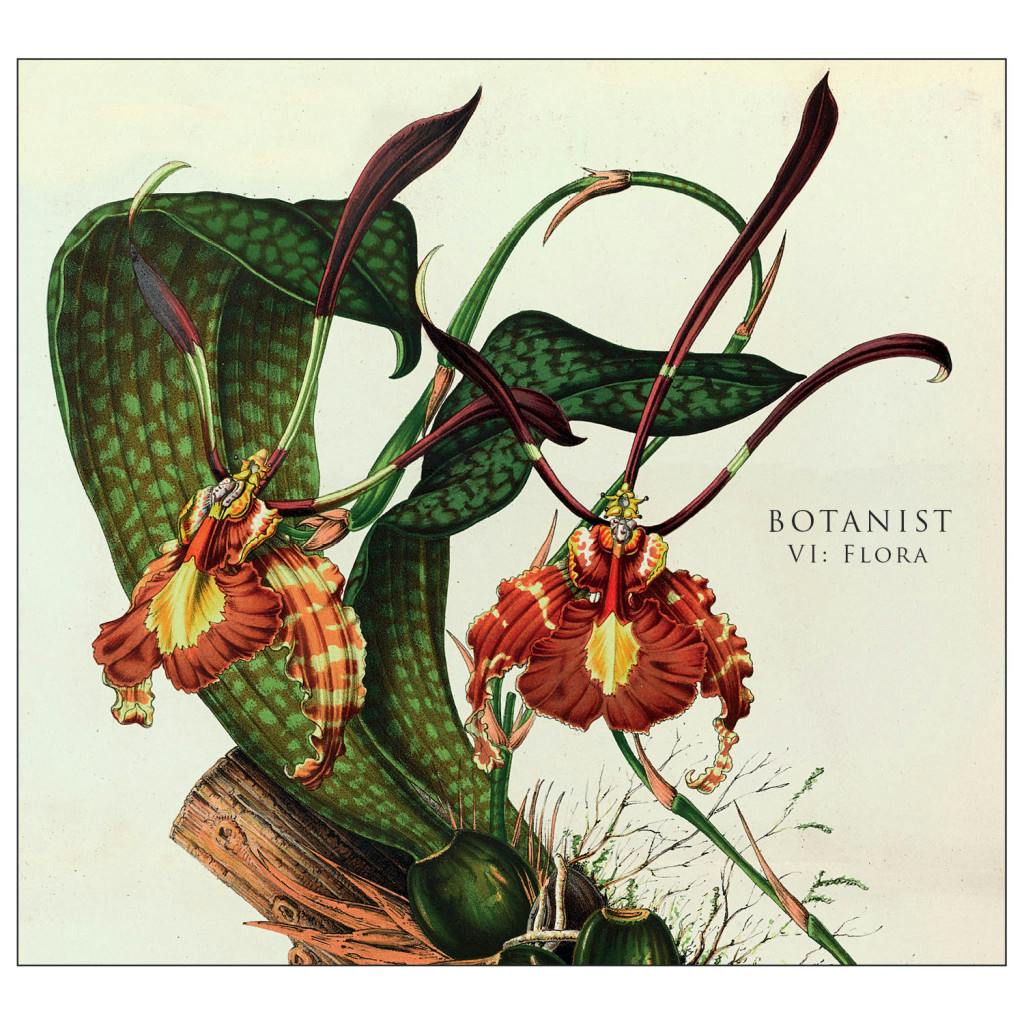news article
Album Review: VI: Flora – Botanist
Originally published 10/29/2014.

[LISTEN] [Label: The Flenser] [Release Date: August 11, 2014] [Genre: Green Metal]
Representing a different sort of black metal from their elitist Norwegian forerunners, San Francisco’s group Botanist conveys a message that is inherently not destructive but productive or even regenerative, making it more akin to “post-black metal” one might have the gumption to say.
Just their use of the hammered dulcimer, an acoustic percussion instrument, in place of the usual buzzy electric guitars suggests their deviation from the over-trodden path of nihilistic, hopeless black metal.
When playing live, the band members don earthy brown cowls covered in tentacle-like vines to confirm Mother Nature, not Satan or some other demonic figurehead of rebellion, as their muse.
Every other element of archetypal black metal is still present (blast beats, screeching vocals, cavernous reverb, etc.) but the overall tone on this record is decidedly hopeful, due in large part to the lyrical content that legitimizes the natural sound of the hammered dulcimers.
Like many other prints from the genre-bending black metal label The Flenser, this record is not simply a dreary black or grey, as would befit a record from keystone outfits such as Mayhem, Immortal or Emperor. Instead, it is a splatter of yellow, black and green, like dappled sunlight on a dark forest floor.
The first track off the sixth part to the ecoterrorist group’s narrative, “Stargazer,” finds them in a rapturous state, proclaiming that Earth is now undergoing a state of “rapid growth, within solar rays resplendent.”
Shoegaze comes to mind when the bright, dreamy chords of “Callistemon” create a wall of impenetrable sound, enhanced by dramatic imagery like “legion thirty-four strong, come the vernal equinox,” before surging into the chaos of the third track, “Cinnamomum Parthenoxylon.”
Though the latin-based jargon of such titles might seem to implicate the misdirected ramblings of some overzealous horticulture major, the poetry throughout is stirring for anyone who listens closely enough to decipher the garbled vocals.
In “Gleditsia,” the plant is anthropomorphized as a wizened god-like being: “Clustered thorns turning red with age, growing from its face as jagged warnings”. The fifth track, “Rhizophora,” narrates the cyclicality of the natural world through blast beat-backed cacophony as it thrives “in brackish water” before “flowing to the sea.”
Listeners might feel a sense of catharsis, even without understanding the homage to the carophyllaceae as a “godlike carnation,” by the time the initial intensity of “Dianthus” boils down to a tranquil dulcimer progression, marking the end of Side A.
Once the dulcimer-wielding druids return on “Leucadendron Argenteum,” listeners are immediately bombarded with august tones, evoking the feeling of a royal procession: “The light shimmers off velvet leaves, silver-sheened guardian beacons.” On “Pteridophyte,” equally deferential sonic and lyrical phrasing is used to describe the immaculate, yin-and-yang-esque symmetry of plant-life: “via spores it disperses, genders entwined, as antherida and archegonia converge.” “Wisteria” and “Erythronium” both serve to build once more to a narrative climax, as the now sprawling forest tightens its grasp on civilization’s remaining outposts using the “immense strength” of the wisteria and “bulbous teeth” of the erythronium.
Side B closes much the same as Side A did, with pensive piano-like pounds on the dulcimer, but this time with a sense of eternal triumph, as if what was won on Side A could be considered nothing more than a minor thorn in civilization’s side compared to the stranglehold achieved by the very end of the album.
One might compare Botanist’s campaign against unnatural powers to the spreading of wildfire, searing through the very skins of plant, animal and human alike, but that would be missing the point entirely. What truly separates these guys from the crowd of black metal songwriters is that their ideology projects a utopia versus a dystopia, a world in which civilization is overthrown so that man and nature may finally achieve harmonious coexistence instead of splintered sovereignty.
[Favorite tracks: “Stargazer,” “Leaucadendron Argenteum,” and “…Gazing…” ]
by Thom Stone
